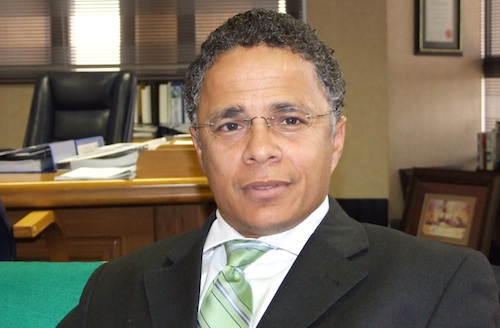
Telkom wants fixed-line wholesale call termination rates to rise, not go down as has been proposed by its regulator, the Independent Communications Authority of SA (Icasa).
The fixed-line operator has told Icasa at public hearings on termination rates in Midrand that the rates it charges other operators to carry calls onto its network should go up.
Telkom regulatory execuive Izaak Coetzee says the company supports Icasa’s proposal of a glide path — a period over which termination rates will be changed. “But it should be upwards, not downwards, in order to recover the access deficit,” Coetzee says.
The access deficit refers to the fact that Telkom is not able to recover the average cost of servicing a line through its base subscription charges.
Coetzee says Telkom’s termination rates — local rates are set at 23c in peak times and 12c in off-peak times and national rates are 33c and 19c — do not allow the company fully to recover its costs.
“Telkom supports cost orientation and believes every operator should be allowed to recover its costs,” Coetzee says. “How does one cater for the access deficit?”
Icasa has proposed reducing fixed-line termination rates to 15c/minute in July 2010, going down to 12c/minute in July 2011 and 10c/minute in July 2012.
It has also proposed doing away with a differentiation between peak and off-peak rates and between local and long-distance calls.
Coetzee says Icasa should set the rates at a level that will allow Telkom to recover not only the access deficit but also its universal service obligations, which require it to provide lines in unprofitable parts of the country.
Andrew Barendse, Telkom’s group executive for regulatory affairs, says Telkom carries the “greatest burden of universal service obligations” and is the “single biggest investor in network infrastructure”.
It should therefore enjoy fixed-line termination rates that will allow it to “continue servicing its obligations and investing in network infrastructure”, he says.
Coetzee says it is generally thought that fixed-line network costs are coming down. But this isn’t correct, he says. “The cost of network elements has increased. Our network is still copper based, and copper prices have increased. Though technology is becoming cheaper, Telkom’s costs have gone up.”
Coetzee has also warned that Telkom is not required to pass through the benefits of reductions in mobile termination rates — the fees the cellular operators charge to carry calls on their networks — to its customers.
When peak-time mobile termination rates were reduced on 1 March from R1,25/minute to 89c/minute, Telkom chose to pass on the full benefit to its customers through a reduction in retail fixed-line to mobile rates. “Telkom gave over R1bn back to its customers,” Coetzee says.
But he says Telkom has “no statutory obligation” to do so. Outgoing Telkom CEO Reuben September warned earlier this month that the company would not necessarily pass on future reductions to consumers. — Duncan McLeod, TechCentral
- Subscribe to our free daily newsletter
- Follow us on Twitter or on Facebook




